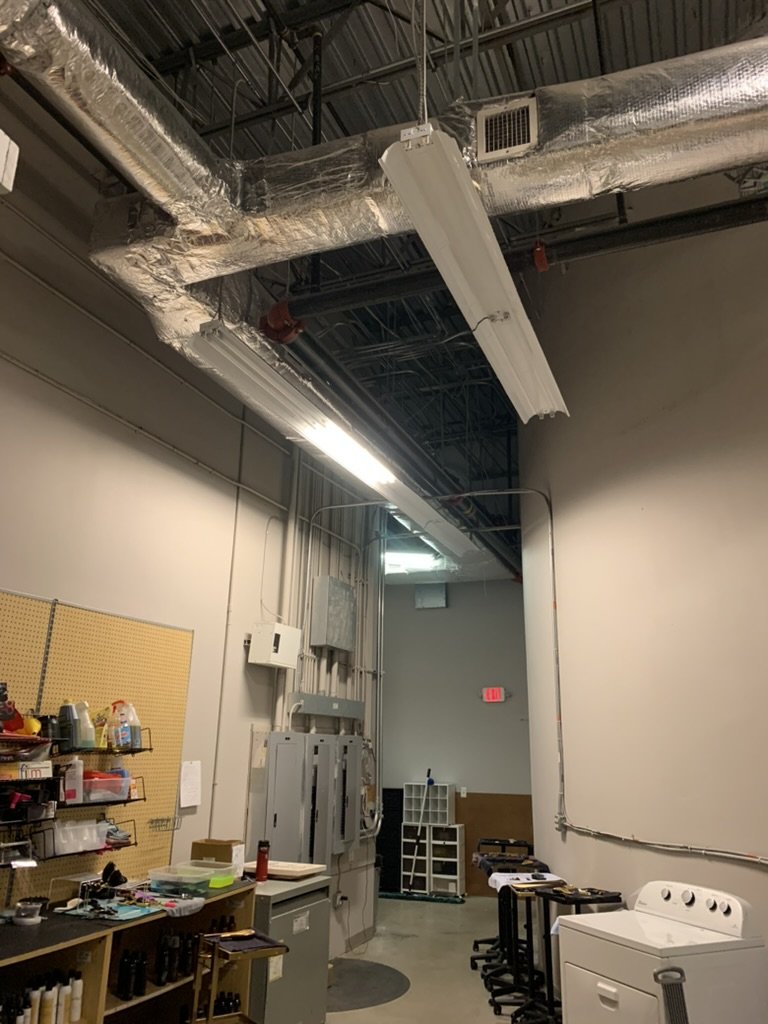HVAC equipment: Quietly making your life easier, until it’s not
More boring stuff from the energy efficiency gurus: Yes, it’s important to maintain your HVAC equipment
Think about it. Except for the structure of the building itself, your HVAC equipment makes up one of the most expensive, and most vital, components of a modern, habitable building. It also accounts for the lion’s share (over 50%) of energy use, emissions, and a big proportion of operating costs in most businesses.
And yet…so many of us don’t even think about what it does until it stops working.
What do we mean by “HVAC equipment?
HVAC equipment includes everything that moves and conditions air in a building.
Ductwork
Dampers
Ventilation intakes and exhaust
Fans
Motors
Heating equipment (furnaces, boilers, heat pumps, baseboard heating, etc.)
Cooling equipment (air conditioners, chillers, compressors, heat pumps (yes they do both), etc.)
During most times of the year - and in many buildings 100% of the time - this equipment is working, ventilating, removing humidity, keeping the air at a comfortable temperature.
Image: Disconnected duct blowing air into the attic instead of into occupied space where it’s needed. (Image credit: Trinity Energy Solutions)
What do we mean when we tell you to “maintain” it? And how often?
Just like you get an oil change for your car, keep your tires inflated, get a yearly checkup with your doctor, or change the batteries in your smoke detectors, your HVAC equipment needs periodic maintenance to run safely and efficiently.
Maintenance is especially important for “combustion appliances” that have an actual flame to burn fuel - gas water heaters, gas furnaces and boilers, for example - because malfunctions can cause deadly carbon monoxide emissions. But all equipment benefits from a yearly checkup by a professional.
Annual HVAC service typically includes:
Checking and changing filters
Checking refrigerant levels and looking for leaks
Cleaning condenser and evaporator coils
·Inspecting the heat exchanger, ignition assembly, and electrical connections
·Examining ductwork and vents
·And other basics to make sure things are operating as they should.
See here for a more complete list: https://www.ecowatch.com/hvac/preventive-maintenance.
How often should you do this? Some advise once in the spring (before cooling season kicks in), and again in the fall (before heating season), but even a single annual tune-up is a huge benefit.
Is there a difference between basic maintenance and energy tune-ups?
Image: Screen before and after cleaning during HVAC Tuneup. Clogged/dirty screens block air flow, which is necessary for efficient equipment operation (Image credit: Trinity Energy Solutions)
Image: Cooling coils before and after cleaning during HVAC Tuneup. Coils rely on passage of air to shed heat from interior spaces; if clogged and dirty efficiency is reduced. (Image credit: Trinity Energy Solutions)
In most situations, yes. Basic maintenance is typically just focused on keeping things running adequately (which is important!), but an energy tune-up will go further by inspecting and cleaning important components that aren’t on the basic checklist. This includes coil cleanings and repair, inspecting ductwork and fixing air leaks, and making sure all sensors are reading and responding properly. We have seen tune-up reports where air leakage has reduced from over 20% to less than 5%! That is a huge savings on day-to-day costs to operate your HVAC.
In Virginia, Dominion programs may cover an energy tune-up for free, depending on where you fall in their programs. See next steps below to help get this set up!
I’m a renter. Should I do anything about HVAC maintenance?
Often, your landlord (or property manager) will be responsible for all things HVAC, especially if you’re located in a multi-unit building with shared or inaccessible equipment. If you’re in a free-standing building, that responsibility might be on you. The key thing, of course, is to check the terms of your lease (ideally before you sign it).
Even if your landlord is responsible, it can still be a good idea to schedule basic maintenance – after all, it’s your operations that will be disrupted if the equipment breaks during a hot spell or a winter storm, and probably you who pays the energy bills.
What do I do next?
If you have an HVAC contractor, ask them about getting on a routine maintenance schedule.
If you don’t yet have a company you work with, ask your business peers
Sign up for a free “HVAC Tune-up” through Dominion Energy’s Small Business Improvement program.
Explore the Energy Resource Hub. The site is focused on the Charlottesville area, but has information on many state- or nationwide programs as well.
Contact C3 with questions at corp@theclimatecollaborative.org.
HVAC equipment requires periodic attention just like the other key elements of your organization’s operations – after all, you likely audit your books, check in with your clients and suppliers, and make plans for operational health and safety. Just add HVAC to your list for periodic check-ins, and you’ll keep your bills lower, spaces more comfortable, avoid costly operational surprises, and knock out one of the most basic climate actions there is. Double high five!





